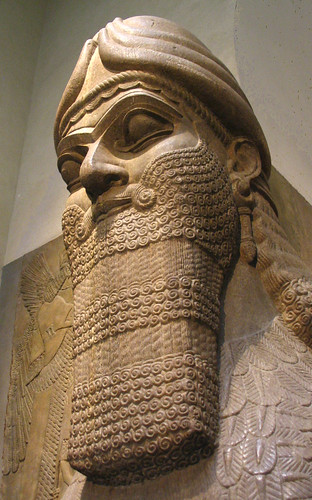Saddam Hussein, the President of Iraq, was deposed on April 9, 2003. He was captured on December 14, 2003 and executed on December 30, 2006.
At every major historic point involving Saddam Hussein, US forces in Iraq, supported by the political leadership in Washington have promised a new threshold. A breaking point.
When April 9, 2003 witnessed the photo-op pulling of the Saddam Hussein statue in Firdaws Square in Baghdad, US media cheered that their military had scored a triumph and that US President George Bush had been justified in pursuing a war (despite international concerns and public alarm) in Iraq.
Soon thereafter, a national resistance was fuelled by a US massacre of civilians in Anbar province, Iraq's western-most and most desert-like province, home to a fiercely proud and religious number of tribes.
This was followed by the May 1 Bush speech declaring Mission Accomplished. Beyond the usual distinctions of 'hindsight is 20-20', many Iraqi pundits, Arab Middle East experts, and historians expressed dismay that the US had committed a plunder unparalleled in its young, and rather bellicose history.
As the Iraqi resistance continued to pound (and confound) US and foreign forces, the White House promised that the fighting would end once Saddam Hussein would be caught.
In the four-week period immediately following his capture, fighting did not subside but surged. US officials, such as Rumsfeld, described the rise in attacks on US forces as the work of deadenders.
The trial of Saddam Hussein was publicized as a means to bring about Iraqi reconciliation. But it was so mishandled, trivialized and censored that international legal experts decried it as a kangaroo court. Iraqis lost interest.
And the fighting continued. With no end in sight to a persistent and fierce resistance, the focus turned to a new enemy - Al-Qaida - which was touted by US media as the face of the "insurgency". Immediately, factional and sectarian warfare broke out, almost timed to coincide with "historic" elections.
Many Iraqi pundits warned that the elections would tear the social fabric of the country apart. Nevertheless, many Iraqis (now acknowledging they were naive to have believed in a democratic process that itself was stillborn) voted. However, it seems, looking back three years later, they had no idea for whom they were voting.
A democratically-elected government came to power in Iraq. And wholesale ethnic cleansing of ministries, schools, colleges, districts, municipalities, and neighborhoods began in earnest.
Under the watchful eyes of the new government and the ministry of interior, the Askari mosque was destroyed specifically to ensure that a civil war would break out.
Militias became the new law (and terror) enforcers.
As Iraq plunged into chaos, the Bush administration chose to start 2007 on a good note. Saddam's execution was rapidly carried out in the dawn hours of December 30, 2006. The Bush administration had hoped to turn over a new leaf at the New Year.
But the fighting continued.
And continues to this day. US forces have acknowledged that there are some 120 attacks on US-led forces every day in Iraq.
The number of Iraqis killed in Iraq is thought to be 1 million. And counting.
Two million Iraqis have fled their homes within Iraq and many live in squatter tent villages elsewhere. Nearly 4 million Iraqis have left the country entirely.
The elections have failed. The execution of Saddam has brought no solace nor respite to the fighting.
September 10, 2007, no weapons of mass destruction have been found. Osama bin Laden thrives in Afghanistan. Al-Qaida is strengthening in much of the Middle East.
And so, we look to the future of Iraq. But no future can be built without first establishing a concrete understanding of the past. What are the mistakes? What are the successes? Is Iraq better off now than it was four years ago? A series of analyses, arguments and counter-arguments will be made here.
Nationalism or religious fundamentalism. Sectarianism or secularism. Unified sovereignty or Balkanization. Occupation or resistance. A future Iraq or no Iraq at all?
